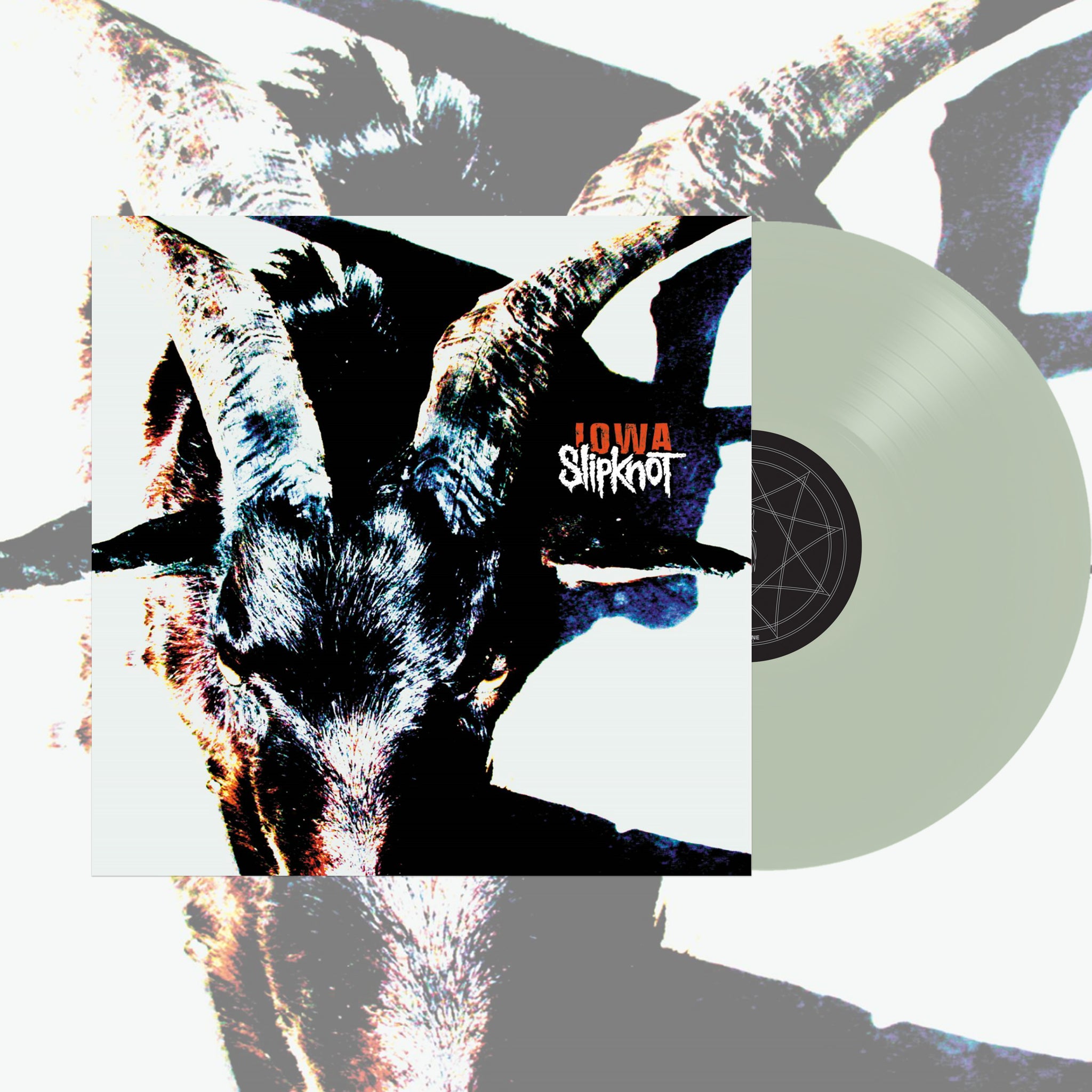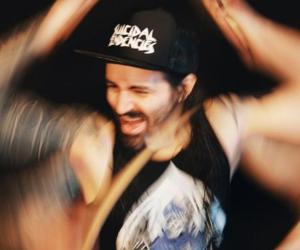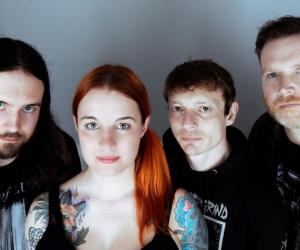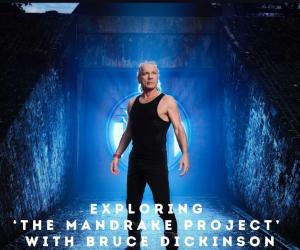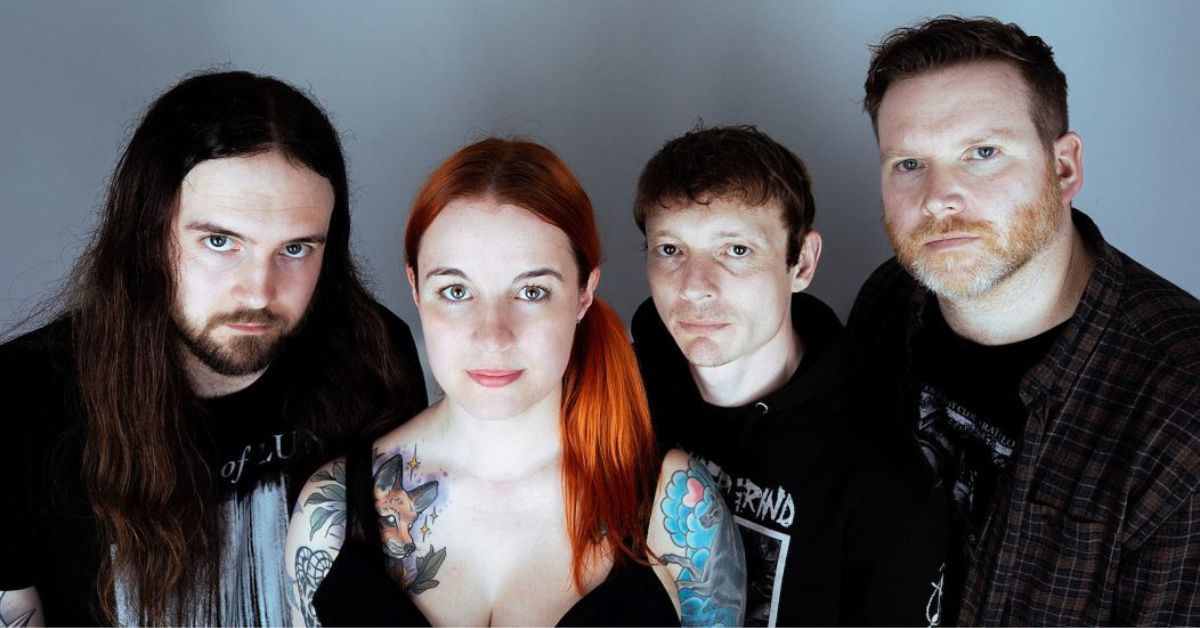
If you’ve been keeping an ear on the underground, you’d know that Bristol metallers Svalbard are one of the most justifiably hyped metal bands on the planet right now.
Having spent their formative years slugging it out in the UK underground, the band has cultivated a unique blend of black metal, post-rock, d-beat, shoegaze, hardcore and post-metal, that is hard to describe but impossible to deny.
Following the release of three EPs and two full-lengths (One Day All This Will End, It’s Hard To Have Hope) Svalbard’s steadfast dedication to honing their craft and relentless appetite for touring paid off in droves when their 2020 album When I Die, Will I Get Better? found favour with discerning metal fans across the globe.
When I Die, Will I Get Better? saw the band cut so deep both musically and lyrically that it raised the question of where can they go from here. How do you follow an album created at the darkest point of your life? On October 6 Svalbard will answer those questions when they release the feverishly anticipated The Weight of the Mask.
The first Svalbard album to be adorned with the iconic brandmark of Nuclear Blast Records, The Weight of the Mask is poised to be a breakthrough release for Svalbard. Born out of a battle with depression that clung like a limpet and then morphed into a beast over lockdown, The Weight of the Mask is about facing up to the beast, about staring down your demons and fighting them with everything you have.
Prior to the album’s release on Friday, we caught up with guitarist/vocalist Serena Cherry for an engaging conversation about Svalbard’s journey to the verge of metal stardom, and in the process unearth a unique connection to the late Joey Jordison that’ll melt even the most blackened of metal hearts.
Bearing ‘The Weight of the Mask’ with Serena Cherry of Svalbard
Maniacs: Svalbard are about to release your fourth studio album, The Weight of the Mask. What makes this your best record?
Serena Cherry: I think The Weight of the Mask is all about an extremity of contrast. So it does sound cliche to say it but it is true, this album has some of the softest songs we’ve ever written and some of the heaviest songs we’ve ever written. I think we've found an expressive quality, within that contrast, where the softer parts represent the light and the hope and the fight against depression, which is what the album is about, and then the heavier parts represent that kind of anger and frustration and sort of spiralling into darkness. So that's a very conflicted album. I think that's what makes it special.
The focus on mental health is something that has become quite predominant over the last few years, particularly in heavy music. Have you found the process of creating this record to be cathartic?
“Absolutely. What was most cathartic for me about creating The Weight of the Mask, was that when you're going through a bad time, or experiencing a real dark patch with depression, as I was, if you can take all that pain and transform it into a song, then it has a transformative power. It is a positive thing. To take something that's hurting you and put it into something that you can perform live and scream out and scream with other people in the crowd. It stops being something that's hurting you and starts being like a form of release. It’s a sort of healing process.”
It feels like that's one of the primary things that attracts people to heavy music. The idea is that there is this communal coming together of people, cleaning themselves of these negative emotions or these negative experiences via visceral sound. Is that something that drew you to the genre space as a youth?
“Definitely. I first heard metal when I was about 11 years old, it was a Fear Factory song on a PlayStation game called MTV Sports Snowboarding. At first, I was kind of a bit scared of it. I was thinking ‘Oh my god, that guy screaming must be off the rails?’ But I think when you’re that age, you’re fascinated and drawn to what you’re a little bit scared of. So I found I kept listening to that Fear Factory song.”
“I was the weird kid at school. A very sensitive sort of child, so I think when I discovered metal, it became my outlet and my release for all of my negative emotions. I think there's a reason so many metal songs have sort of depressing or dark lyrics is because it's a natural vessel to kind of release those emotions and harness the empowering aggression of the sound of distorted guitars and metal drums, it just feels like the perfect fit.”
The record is brilliant. Have you found that people are responding to the singles the way that you expected them to or have you been surprised?
“As a band, we have our hands in the sand a little bit when we are creating something. We try not to write music with a preconceived idea of what we want it to be or how we want the audience to react. We don’t walk into the room and ‘alright, we’re gonna write a heavy song today’, we just let it unfold in the moment.”
“To an extent, that approach comes with a lack of expectation as to how people will respond to it. When we released Eternal Spirits I had no idea how people were going to react to it. I think that’s a good thing. You never want to put too much expectation on your listeners to feel a certain way. The music is open for them to interpret.”
“I must say when we released How To Swim Down I was nervous about releasing that song, as it is the first one where it is all clean singing. It is our Nothing Else Matters moment. It’s our ballad. So I was nervous because the previous two songs we wrote and we released from the album were so heavy and direct. How To Swim Down was such a curveball. I was worried about alienating people, who were drawn in from the first two songs, but their reactions so far have been incredible. I’ve been amazed to see people are enjoying it so much. It’s nice.”
For you who I understand grew up loving Nightwish, is it rewarding being able to show people that your voice can carry a song melodically?
“I feel like most people go the other way in metal, from singing to screaming, feeling like they have something to prove, but for me, it was the other way around. I went from screaming to singing to prove to myself that I could carry a song all the way through. The most important thing about the clean singing on How To Swim Down was ensuring the vulnerability of it could be felt. It’s a song about unrequited love. I wanted that clean singing to represent when you’re in your house, singing to yourself. That’s why it is so soft. I’m not belting it out, it’s whispered singing, because it’s a secret love song. So I wanted to that that vulnerability across in the singing.”
I am curious as to how you discovered that you could scream. This is something that isn't an instinctive ability for people. So was there a light bulb moment that you recall where you realised ‘Oh, my God, I can make that sound?’
“I used to just practice and practice and practice. One of the first bands I ever saw live was Kittie, I would have been about 14 years old and seeing Morgan Lander screaming her guts up on stage lit a fire inside me to try that. So I remember the next day getting home from school and trying to scream, but not wanting my sister to hear. So I was muffling it into a pillar, and I just did that for a long time. You know what it’s like when you’re a teenager and you’ve got all these metal heroes and you just try and emulate them. But back in my day, no one was there to teach you how to scream. So it was out of a lot of trial and error and a lot of blowing my voice out, to be honest with you.”
“On the first couple of albums, I did struggle with touring, I did struggle with blowing my voice out when we were recording albums, doing lots of takes and stuff. Now it's completely the opposite. Our producers are like ‘You're the fastest vocalist I've worked with’ because I can do most lines in one tape. That switch around was because I started going swimming a couple of times a week and running. That was a game-changer for me. It expanded my lung capacity and my breath control, which influenced my vocals.”
This is your fourth record. But it's only recently that you've attracted this enormous amount of hype, particularly in the British press. Do you remember the point when it started accelerating for you?
“I think a real turning point for us was releasing When I Die Will I Get Better on Church Row Records and seeing the reaction to that, seeing the reviews flooding in saying we’d taken a huge leap forward. That was very noticeable, I remember we’d receive loads more messages on our social media from people saying that they loved the album, saying how much it was affecting them, and how deeply they connected with the lyrics. That’s when it hit me that maybe we’d written something that was a little beyond our previous work.”
It does seem like a bit of a pattern with the UK press when it comes to underground metal, there is a real slow burn, almost gatekeeper mentality of ‘go on then, prove it to us’, which means it can take a few albums for people to jump onboard. Have you noticed that yourself?
“It does take a few albums for people to catch on here. What’s interesting about that is if you think back to the ‘70s when UK bands were given record deals, they weren’t expected to make a hit record until their third album. I used to work in the music press and I interviewed Scott from Thin Lizzy and he was explaining to me that you weren’t expected to get it right the first time, I wonder if that’s still a lingering thing, that your first and second albums are treated like demos, but if by album three, you’ve nailed it by then, then you’re good to go, they’ll have you.”
It’s an unfortunate cultural development, I think, that artists aren’t given that time, to mature and to evolve and to become who they can be. It’s a very American capitalist concept that if it’s not a hit the first time, then it's not worth your time. As an artist, do you kind of wish it was a little bit more like it was in the 70s, where you got more time to grow?
“Oh, my gosh, if I could go back in time and be a band in the ‘70s or let’s say the ‘90s would probably be a better time Svalbard, when people have the appetite for the real heavier side of things. If I could go back then to when there was more patience when it wasn't about having a 30-second clip for TikTok. That’d be incredible.”
“The attention span these days towards music is so different. And so much is focused on going viral on social media and not releasing a full album where the album and the tracks and the track order make sense. Now, it's like, Well, do you have a 22-second bit that can trend? This is a detrimental way to look at music, I think, and it all feels cynical. Even with the use of a song trending on TikTok, it becomes about the song being a background for people doing dumb shit. It isn't about the song itself. So it feels like a really kind of shallow way to consume music. I feel like if we were a band in the ‘90s, and our streams were sales, we'd be living off it. I wouldn't be on my lunch break at work right now.”
I couldn't agree with you more.
“I feel like things would be a lot more comfortable. I think what's interesting is as when you look at lineups on festivals, it's all the bands from the ‘90s and ‘80s, who are still in those big positions headlining, and people have this misconception like Steve Souza from Exodus, he exclaimed, ‘no one's going to be able to fill the boots of Iron Maiden and Metallica when they eventually stop playing, no one's going to be able to headline these festivals.’
"I think that's the wrong way to look at it because he was saying no modern bands have that kind of rockstar ability to capture a whole crowd in that way. That’s so incorrect to me because the reality is none of them have the budget. Iron Maiden have made so much money and have had so much money behind them from a very early time. When the scene was so different. So people see them and go ‘Those shows are so great! How come your show isn't great?’
“Well, it’s because we don't have a budget, it’s like they’re confusing a production budget for what’s good. People can go and see something like Ramstein and go ‘they’re amazing live’. Well, are they? Or did you just see a fireworks show? You know? So that's my kind of concern is that the budget gap of what bands have nowadays is going to make people think that they're not as good when you know, it's a completely unmeritocratic way to measure music. God, I've gone off on a rant, I'm so sorry.”
Arguably the last wave of of bands that were able to get enormously famous were those that blew up during the late ‘90s to mid-'00s. One of those bands of course is Slipknot. Their former drummer was the late Joey Jordison. Your single Eternal Spirits was inspired by Joey Jordison. How important was the influence of Joey Jordison and also of Slipknot on the making of this record and the music of Svalbard?
“Slipknot is the one band where everyone in Svalbard’s taste overlaps and that we all feel the same amount of passion and love towards. We all come from different backgrounds, I’m from Black Metal, Liam’s from hardcore, and Mark is from grindcore and tech-death, so we all come from really different scenes, but we all agree on Slipknot. So if anyone sticks on self-titled or Iowa in the van, everyone knows every single lyric. My first-ever email address was slipknotaremylife@hotmail.com. So Fear Factory was the first metal band I ever heard, but Slipknot was when I fell in love.”
“Eyeless was the first song I heard and I was transfixed. I had never heard anything that sounded like it. I think what is powerful about Slipknot is the sense of desperation. It is angry, but it is also inward-looking, desperate and bleak. Sometimes it sounds like the the musical equivalent of someone tearing at the walls because they’re so frustrated. The lyrics are really intelligent. I believe it was Joey who penned Slipknot’s greatest lyrics which is ‘I want to slit your throat and fuck the wound’. So as a teenager, I was obsessed with Slipknot.”
Eternal Spirits shows that you had a particular fondness for Joey, what was it about Joey that moved you so much?
“I'll tell you the story. I went to loads of Slipknot shows when they were in the UK. I'd read every single interview that Joey Jordison ever gave, I would consume any bit of media available on Slipknot. I read that he liked Mike Patton. My mum is a record collector who used to take me along to record fairs. I found this super rare bootleg recording of Mr. Bungle and Fantomas, two of Mike Patton’s bands. It was a split. So I all my money from my paper round job to buy it for Joey and went to a Slipknot signing. At the time I was learning drums because I wanted to play just like Joey, so I wrote him a letter saying, you know, you've inspired me to play drums, and I know you like my Mike Patton, so here's this record, and I gave it to him and his girlfriend at the time. As you know at these things where you get everything signed, there are thousands of people, so while he was thankful, you get rushed along, but his girlfriend ran following me out the store and was like ‘Joey wants you to have this’, and it was a backstage pass for the show, at Birmingham in 2002 on the Iowa tour.”
“So I went backstage after the show, and I got to hang out with Joey and talk about music, and we talked about our favourite KISS songs, and we just had this really lovely conversation. After that point, every time he was in the UK, we would get to hang out and I remember giving him a tape of me drumming and him being so encouraging saying ‘Oh, don't give up’ That’s the thing With Joey, there is a lot of cynical sharks in the music industry but Joey's passion and love and encouragement for metal and younger bands, was so genuine. He had his ear to the ground, he knew so many underground, up-and-coming bands and he was so encouraging.”
“He was always there cheering me on. I’m trying not to get too emotional here, but I wouldn't be playing instruments if it wasn't for him. So yeah, he is like, the reason I play music and I was devastated when he passed away.”
The Weight of the Mask is out on October 6 via Nuclear Blast Records.
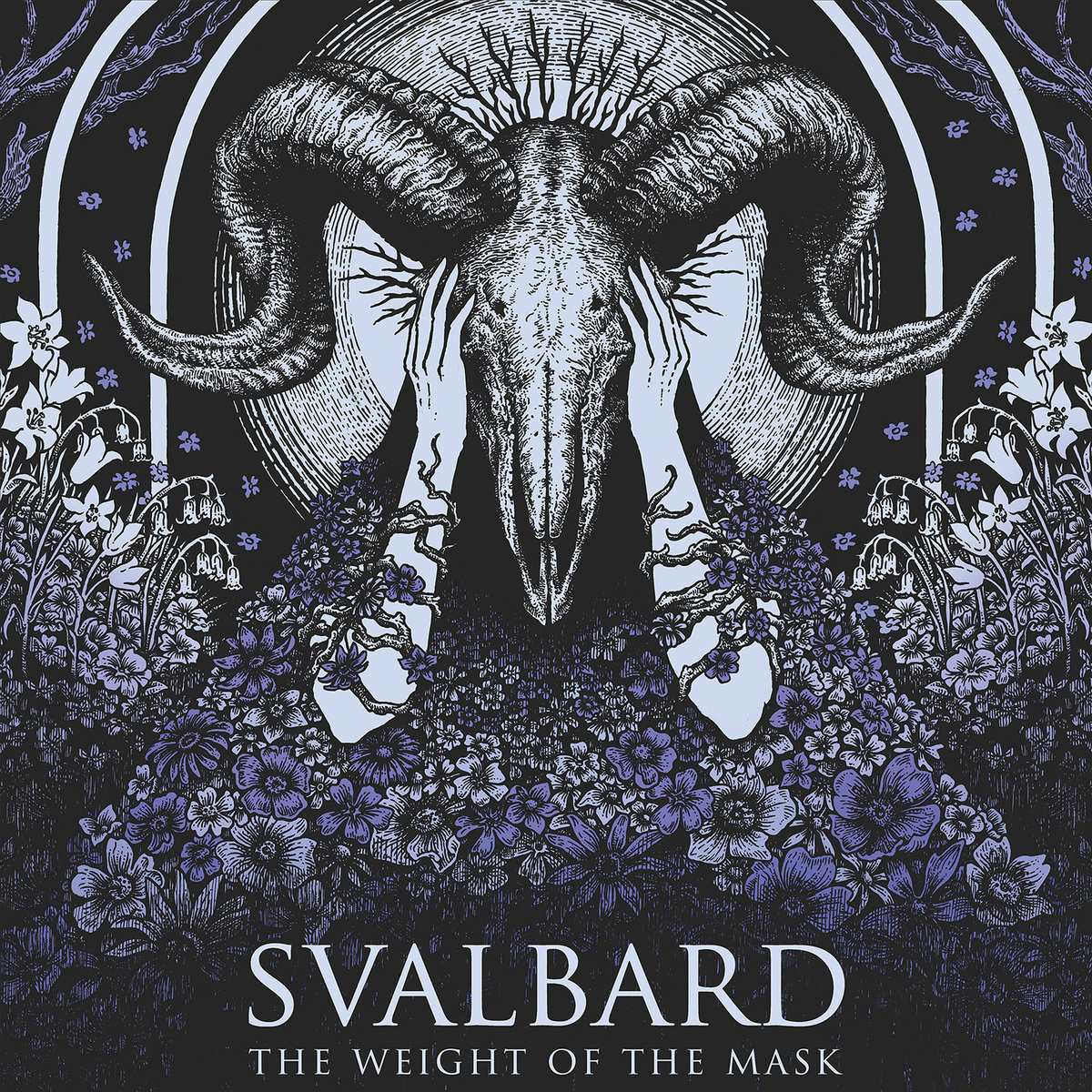
Listen to Svalbard now our Metal Maniacs playlist.
Shop for Metal Vinyl


